
Senior writer Tina Hesman Saey is a geneticist-turned-science writer who covers all things microscopic and a few too big to be viewed under a microscope. She is an honors graduate of the University of Nebraska-Lincoln where she did research on tobacco plants and ethanol-producing bacteria. She spent a year as a Fulbright scholar at the Georg-August University in Göttingen, Germany, studying microbiology and traveling. Her work on how yeast turn on and off one gene earned her a Ph.D. in molecular genetics at Washington University in St. Louis. Tina then rounded out her degree collection with a master’s in science journalism from Boston University. She interned at the Dallas Morning News and Science News before returning to St. Louis to cover biotechnology, genetics and medical science for the St. Louis Post-Dispatch. After a seven year stint as a newspaper reporter, she returned to Science News. Her work has been honored by the National Academies of Sciences, Engineering and Medicine, the Endocrine Society, the Genetics Society of America and by journalism organizations.

Trustworthy journalism comes at a price.
Scientists and journalists share a core belief in questioning, observing and verifying to reach the truth. Science News reports on crucial research and discovery across science disciplines. We need your financial support to make it happen – every contribution makes a difference.
All Stories by Tina Hesman Saey
-
 Life
LifeTo get a deeper tan, don’t sunbathe every day
Skin cells make protective melanin on a 48-hour cycle.
-
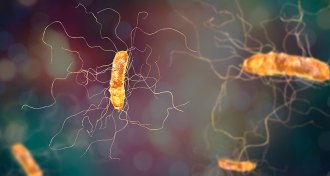 Life
LifeWhy some people may be more susceptible to deadly C. difficile infections
Proline, a type of amino acid, increases when gut microbe mixes are disturbed, giving this pathogen a ready food source.
-
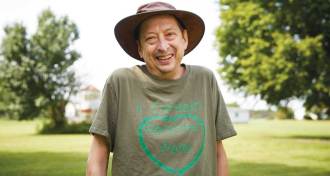 Life
LifeHow to make organ transplants last
New strategies aim to help transplant recipients keep their organs healthy with fewer (or no) immune suppressing drugs.
-
 Genetics
GeneticsDNA differences are linked to having same-sex sexual partners
Genetic differences are associated with choosing same-sex partners in both men and women.
-
 Genetics
GeneticsGenealogy databases could reveal the identity of most Americans
Keeping your DNA private is getting harder.
-
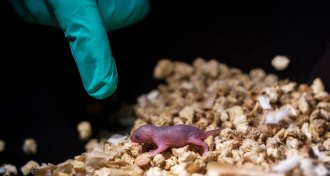 Life
LifeGene editing creates mice with two biological dads for the first time
Scientists have used CRISPR/Cas9 to make mice with two biological fathers.
-
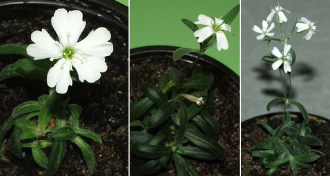 Plants
Plants50 years ago, a 550-year-old seed sprouted
Old seeds can sprout new plants even after centuries of dormancy.
-
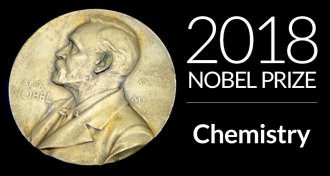 Chemistry
ChemistrySpeeding up the evolution of proteins wins the chemistry Nobel
Work on evolving new proteins from old ones takes the Nobel Prize in chemistry.
-
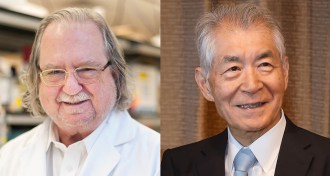 Health & Medicine
Health & MedicineDiscovery of how to prod a patient’s immune system to fight cancer wins a Nobel
Two scientists share the 2018 medicine Nobel for identifying proteins that act as brakes on tumor-fighting T cells.
-
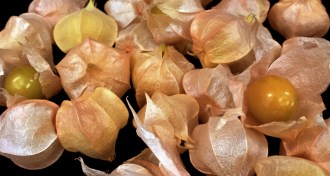 Plants
PlantsGene editing can speed up plant domestication
CRISPR/Cas9 replays domestication to make better ground cherries and tomatoes.
-
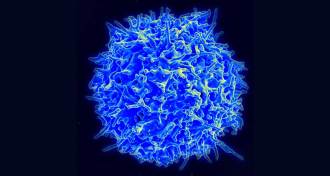 Life
LifeCancer immunotherapy wins the 2018 medicine Nobel Prize
Therapies that unleash immune system brakes against cancer have earned the 2018 Nobel Prize in physiology or medicine.
-
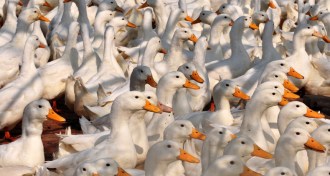 Life
LifeIn China, a deadly strain of bird flu now easily infects ducks
H7N9 evolved the ability to infect ducks just as a vaccine for chickens came into use.